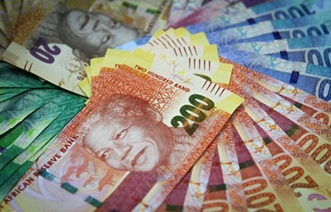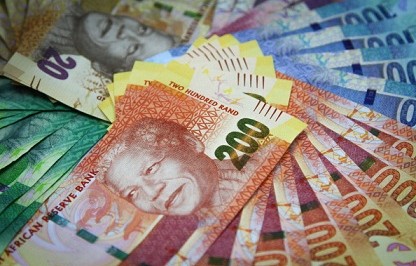The Rand is Set to Experience A Crippling Blow in Coming Months!
Interest Rate Hikes Dash Hopes of ZAR Recovery
The ZAR is one of several emerging currencies set to experience ongoing declines in the coming months. As part of a vulnerable group of currencies, the South African rand is staring down a barrel against the USD, GBP, EUR and JPY. And the rot is likely to continue when the U.S. Federal Reserve Bank announces interest rate hikes in coming months. When the decision is made, it will be the first time in almost ten years that the Fed has opted for an increase. While currency traders appear to be nonchalant about the prospect at present, there will likely be fireworks in the future.
The U.S. economy has come under pressure from weaker than expected data that has been released in Q1 and the projections for Q2 are also somewhat lacklustre. As a result, the Fed does not believe that now is the right time to raise interest rates – given that an increase in interest rates causes a tightening of the money supply which supplants positive economic growth. If there are interest rate hikes, they will likely take place towards the end of 2015. And within this time frame, there are likely to be runs on emerging currencies.
As it stands, currency traders have already factored in the potential effects of interest-rate hikes. This explains why emerging currencies have come under such pressure. However, when illiquid positions are considered in worldwide markets, traders could easily take a hard-line position against emerging currencies like the South African Rand. Evidence of this is easily seen in the tapering of QE in the U.S. Investors instantly reacted by cutting their interests in emerging market economies, and currencies like the Brazilian real, Turkish lira and the South African rand took a big hit.
U.S. Dollar Strength Continues
The dollar has come under short term pressure from the euro, but the fundamentals of the U.S. economy are sound and the greenback is expected to perform well moving forward. Investor sentiment in countries like South Africa is poor, given the country’s chronic power outages, crime, corruption and general degradation. In Brazil the situation is equally dire with a biting recession that has thrown the economy into a tailspin. In both instances the outlook for these countries is negative and it reflects in the cross-currency exchange rates. The ZAR is currently trading at R12.26 to the USD, but analysts posit that it could drop to R12.35 within a year.
Across the ocean, in Brazil, the real is currently trading at 3.14 to the USD, but that is expected to drop to 3.27 to the USD within a year. Brazil is suffering from massive budget shortfalls, owing to an economic contraction that has cut deep into its current account. Much the same is true of the Turkish lira which is now agonizing through a blatant attempt at a power grab by the country’s prime minister. As a result of what’s going on in emerging markets, many analysts are taking a bearish position on the Brazilian real, the South African rand and the Turkish lira.
Author’s Bio: Brett Chatz is a graduate of the University of South Africa, and holds a Bachelor of Commerce degree, with Economics and Strategic management as his major subjects. Nowadays Brett contributes from his vast expertise for the globally renowned spread betting and CFD trading company – Intertrader.
